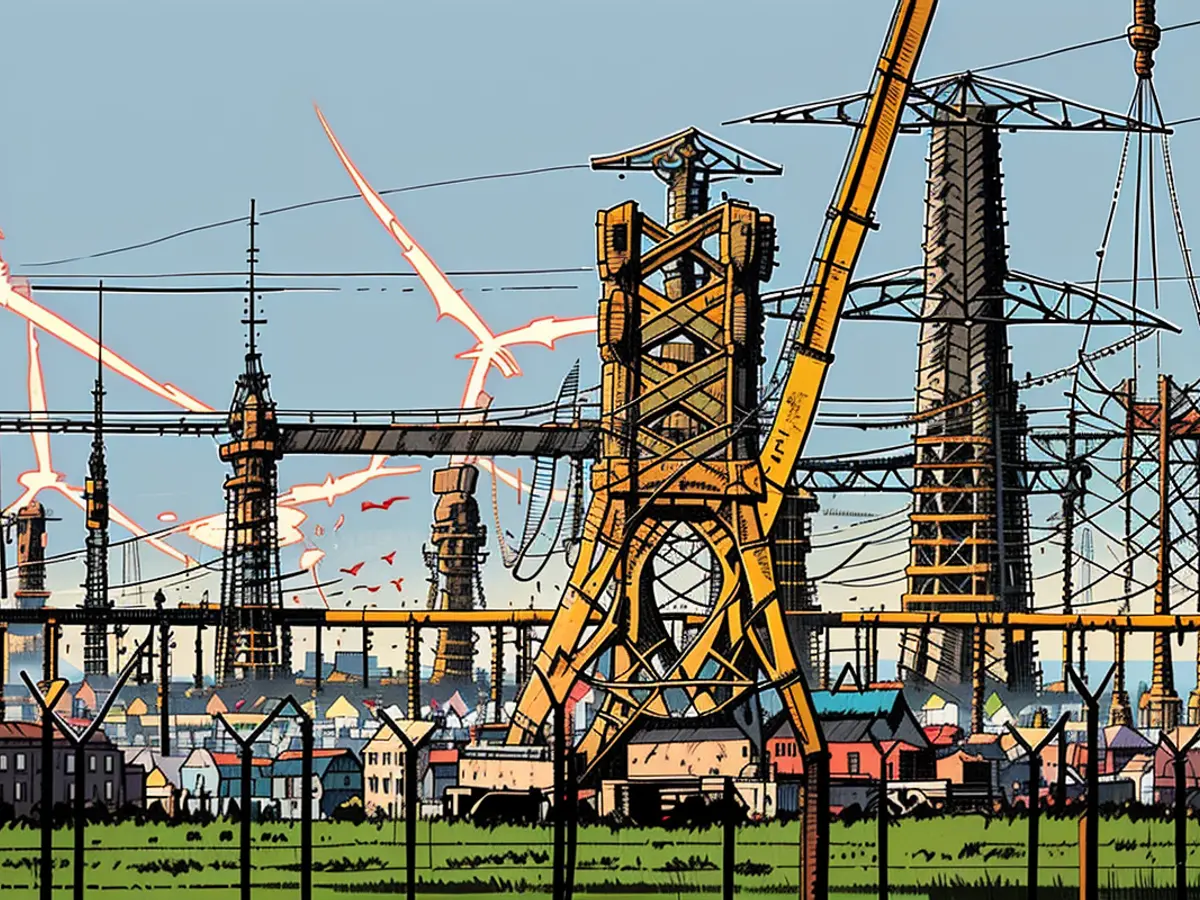Habeck advocates for the government to fund network expansion in advance.
German Economics Minister Robert Habeck advocates for the government to cover the upfront costs of power grid expansion in Germany. These aren't short-term expenses, but long-term investments for future generations, as Habeck stated during a visit to Georgsmarienhütte electric steelworks. He believes it's essential to distribute these costs over time by using government funds to pre-finance them, thereby reducing grid charges immediately. "I support this idea," he said, adding that this plan was already in the pipeline prior to the constitutional court ruling on the federal budget. However, the financing mechanism needs to be restructured now.
Power grids necessitate expansion primarily from north to south to convey wind power to industrial areas in the west and south. These expenses are then transferred to electricity bills. Consequently, this block has increased significantly of late and is anticipated to keep rising. For domestic consumers, it represents roughly a quarter of the electricity price. In industry, it typically surpasses 50%, reaching over 50% at Georgsmarienhütte currently.
"This is undermining our foundation," commented Alexander Becker, the company's managing director. Due to this, we can't execute a significant portion of the planned investments. "This trend will persist," he warned. "We are in dire need of relief from grid charges." Otherwise, we will continue to suffer in terms of competitiveness.
Georgsmarienhütte electric steelworks replaced coal-fired blast furnaces with an electric arc furnace back in 1994, funded by its own resources. The plant consumes as much electricity as the entire city of Osnabrück next door. It manufactures steel from scrap and further refines it. To achieve this 'refining', a new plant came into operation at the start of the year, now powered by renewable electricity instead of natural gas. Another plant, funded by the economics ministry, is slated to commence operations by the end of 2026 at Georgsmarienhütte. The company generates approximately 2 billion euros in revenue with a workforce of 6,000 employees across 50 countries.
"I understand your concerns, but I'm not going to agree to shouldering these increased grid charges entirely ourselves. We need the government's support as per Habeck's proposal."
"Given our current financial situation and the rising grid charges, I'm not going to propose any significant investment plans until we receive relief from these charges."








